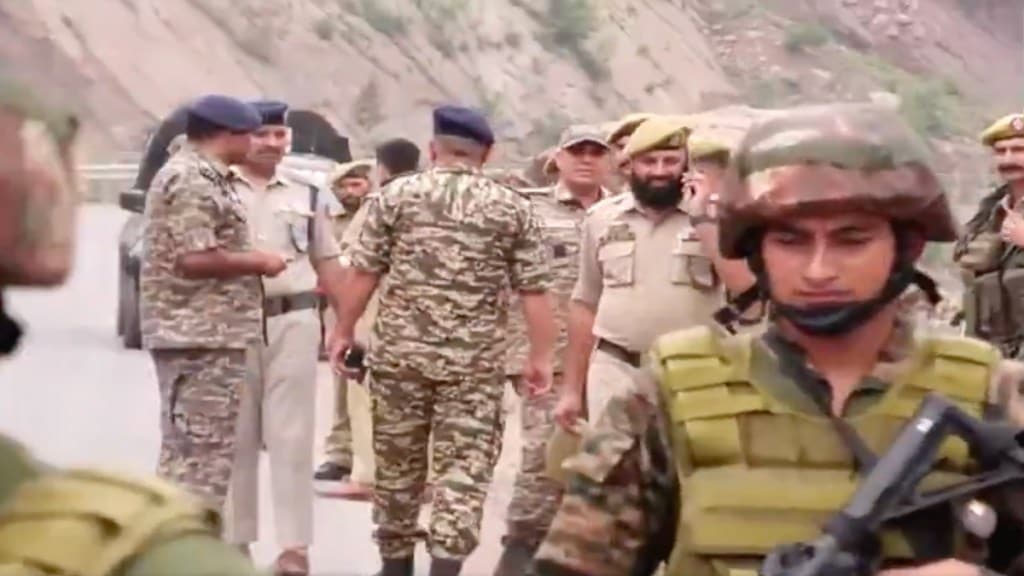Amarnath Yatra 2025: Preparations for the Shri Amarnath Yatra 2025 are in full swing as security forces and the civil administration conduct intensive inspections and trial runs ahead of the pilgrimage, scheduled to commence on July 3 through the Baltal and Pahalgam routes in Jammu and Kashmir. Registration for devotees who missed the online window has begun at special centres in Jammu, drawing large crowds.
At Yatri Niwas, Jammu’s base camp, buses were dispatched under full security cover to test logistics and response systems. The first batch of pilgrims will be formally flagged off from Jammu on July 2.
Devotees undeterred by terror threats
Despite recent security threats, the spirit of the devotees remains undiminished. One pilgrim expressed determination, saying, “I have faith in Amarnath. Terrorists can try anything, they won’t succeed. I urge people to visit J&K and show that we are not afraid.”
This sentiment echoes the mood among the faithful, as the number of registered pilgrims continues to grow rapidly.
#WATCH | Jammu, J&K | Large number of devotees visit the special centres as the registration for Amarnath Yatra begins today in special centres set by the administration in Jammu.
— ANI (@ANI) June 30, 2025
The Amarnath Yatra will commence on 3 July through the Baltal and Pahalgam routes. Currently, the… pic.twitter.com/gm1XEgVwF8
CRPF, Army and police launch multi-layered security plan
In response to recent attacks, including one in Pahalgam, authorities have designed an elaborate security framework involving CRPF, J&K Police, and the Indian Army. A mock landslide drill at Samroli, Toldi Nallah tested coordination between security and disaster response agencies.
DSP Udhampur Prahlad Kumar confirmed, “The mock drill was conducted successfully to assess joint response capabilities.”
The CRPF has deployed K9 squads, intensified surveillance along NH-44, and introduced ‘Marksman’ bulletproof vehicles to accompany pilgrim convoys. Women commandos, who gained recognition during Operation Sindoor, will also be part of the Yatra security detail, marking a significant shift toward more inclusive security deployment.
Digital IDs, drone surveillance and Quick Action Teams on standby
Key to the robust security arrangements is the use of digital ID cards for pilgrims and pony operators to enhance tracking and crowd management. Drones, Quick Action Teams (QATs), bomb disposal squads, and Joint Police Control Room (PCR) vehicles will be active throughout the routes, ensuring rapid response to emergencies.
Sensitive stretches, such as the Udhampur sector, will receive special focus, while live drone surveillance will monitor vulnerable areas in real-time.
Operation Dal launched for post-yatra security
Recognising the potential post-Yatra threats, the CRPF has launched Operation Dal to safeguard Dal Lake, a popular tourist destination. The CRPF’s specialised water wing will oversee safety operations in the area, further contributing to J-K’s overall security ecosystem.
What do we know about this year’s Amarnath Yatra?
This year’s 38-day Yatra duration, shorter than usual, has been strategically chosen to minimise exposure while retaining the pilgrimage’s spiritual essence. Authorities have conducted route audits and digital mapping to ensure safe travel. During convoy movements, all approach routes will be blocked, and jammers will neutralise communication threats.
Deputy Commissioner Jammu Sachin Kumar Vaishy stated, “We are fully prepared. All facilities are in place at Saraswati Dham, and we appeal to devotees to participate in large numbers.”

